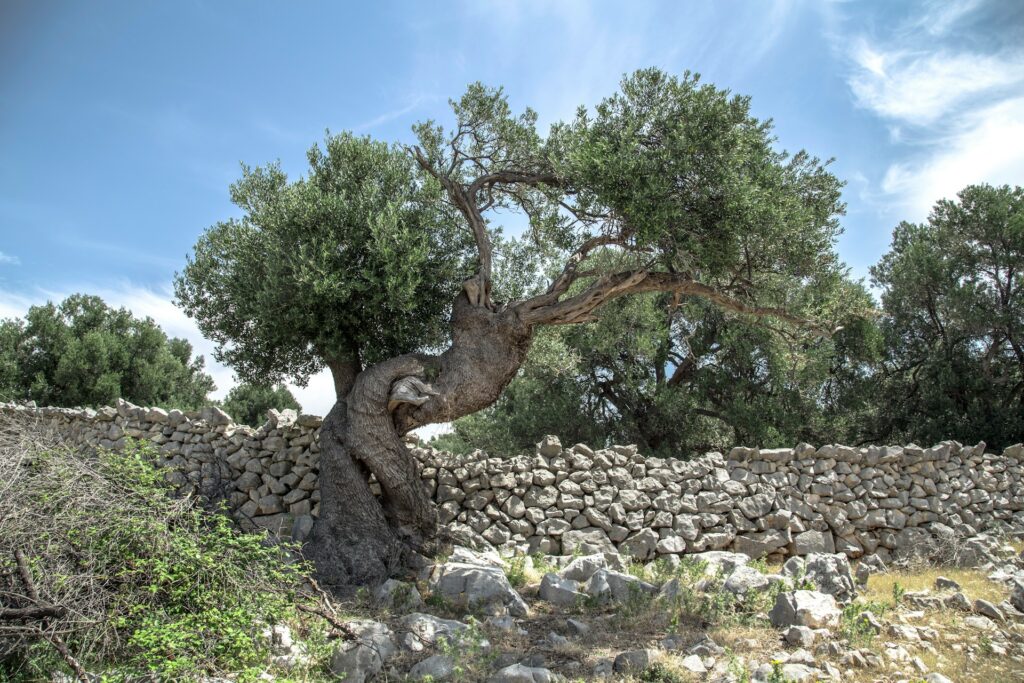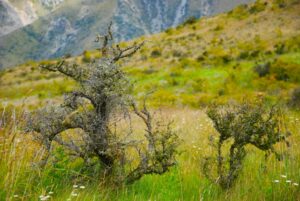- blog
- January 24, 2024

Photo by Milada Vigerova on Unsplash
The roots of the U.S. Bill of Rights—and a warning of how political corruption destroys the balance between order and liberty necessary for human flourishing—can be seen in the Bible teaching of a Puritan pastor.
The Puritan pastor Thomas Shepard (1605–1649) is relatively unknown today, but his teaching on the way the Bible ties together civil liberty and order helped shape the first written statement of individual rights in the American colonies, the Massachusetts Body of Liberties (1641). This document protects not only traditional English rights but also new ones that were explicitly derived from the Puritans’ religious convictions and which would eventually be incorporated into the United States’ Bill of Rights.
Massachusetts Bay was founded in 1629 largely by Puritan dissenters from England’s established church who had experienced the perils of arbitrary government. They envisioned the colony not only as a haven from religious persecution but also as a “city on a hill” (Matthew 5:14). Here, the Puritan understanding of biblical principles could be put into practice to shape a new social and civil order. The success of this new order would, in turn, serve as a beacon to others watching from outside (particularly those who remained in England).
The earliest years of the colony were devoted to working out the broad contours of such a society, testing the balance between the freedoms of individual believers and the rights of the community as a whole. By the mid 1630s, public pressure for codification of these emerging principles began to build.
The Body of Liberties was intended to be something like the Magna Carta in setting forth the fundamental freedoms of the people. It was not a response to a political crisis but a measured statement of the principles of civil and religious liberty that the Massachusetts Bay colonists (still largely Puritans at this early date) believed could be derived from Scripture.
As systematic theologians, the Puritans looked to the Old Testament for “types” of both good and bad leadership, finding in the historical narratives of Israel glimpses of a divine plan for a civil order. Articulating these theological principles in legal form took time. Thomas Shepard and others labored over the Body of Liberties for half a decade before presenting it to their fellow citizens. During that period, Shepard used his pulpit to elaborate a view of both the promise and the potential peril of civil liberty rooted in the biblical text.
In 1638, for example, he was asked to preach the colony’s election day sermon, a sermon delivered in the context of the annual voting on and installation of the colony’s governor and other public officials. Shepard took for his focus text the short parable of the bramble and the trees in Judges 9:7–15.

Photo by Kerin Gedge on Unsplash
In the parable, the trees decide they need a king to reign over them. Shepard says that the trees represent “the rational men in a Commonwealth,” who have the “liberty of election of their rulers over them.” As the parable unfolds, the trees go first to the olive and then to the fig and then to the grape vine—each representative of a class of men (the wise, rich, or holy) who have particular gifts—asking them each in turn to assume the throne. Each one refuses, declaring that to do so would require them to neglect their natural gifts of “fatness,” “sweetness,” and “wine.” Kingship, it seems, is incompatible with the production of the fruits by which these plants naturally and generously serve “both God and man.”
In desperation, the trees ask the fruitless bramble to be their king. In contrast to the fruitful plants that were reluctant to assume political power and give up their natural contributions to the common good, the bramble is more than willing to see himself elevated. Perhaps because he is aware that he can offer no natural incentives to ensure the loyalty of the trees, he eagerly grasps at the promise of power. True to his nature, the bramble couples his acceptance with “sharp and bloody” threats, telling the trees that if they do not stay “under his shadow,” he will destroy them.
The biblical context for the parable is the murderous coup led by Gideon’s son Abimelech against his own half-brothers with the consent of the people of the city of Shechem, who agree to set him up as their ruler. Jotham, the only survivor of the slaughter, tells the parable as a way of admonishing the townspeople.
Unsurprisingly, in the biblical narrative, as in the parable, the king is to be blamed for his tyranny; perhaps less expected is the lesson that the people themselves are in part responsible for their own loss of freedom by their poor choice of political leadership. Having rejected God’s plan to rule them through the relatively democratic means of the judges, the people have only themselves to blame when they find themselves under unjust or corrupt rulers.
Shepard’s main point is not about the merits of democracy over monarchy, but rather about the importance of maintaining individual liberty. Beyond the obvious dangers of concentrating power in the hands of sinful individuals, Shepard uses the text to explore the fragility of liberty when the natural human inclination is to delegate both power and responsibility. The parable highlights one of the real dangers of a politics based on consent: that the people will grow weary of the work of participating in their own governance and so become susceptible to tyrannical rule.
Thus, while he unsurprisingly highlights the importance of selecting the right sort of rulers, Shepard uses this election-day sermon to address the ways other than mere ballot-casting that citizens are responsible to contribute to their own governance. For Shepard, the consent of the governed has an ongoing and active dimension: the people must know and guard their liberties, and not be too eager to surrender them in exchange for presumptive benefits at the hands of their governors. He urges his audience to look beyond their immediate good to “the consequences of things,” and to be diligent about overseeing their representatives’ actions. The burdens of citizenship in “free states” are real, Shepard acknowledges—but they are as nothing compared to the perils of abdicating our political responsibilities.
To ease the burdens of citizenship, Shepard promotes the benefits of the type of constitution-style fundamental laws he and others were in the process of drafting for the colony. “Where laws rule, men do not,” he observes. If the laws are well-framed, then there will be less opportunity for persons with interests opposed to the common good to assert their ambitions.
Shepard cites 1 Timothy 2:2 to assert that the divinely appointed “ends” for government are “that we may lead a quiet and a peaceable life, in all godliness, and honesty.” In this final exhortation, Shepard draws our attention to the ability of published laws to further this end. Just and well-framed laws provide orderly boundaries to both the exercise of individual liberty and arbitrary state power, either one of which might threaten the peace and flourishing of the community.
In the parable, the wise, rich, and holy were content to influence their fellow citizens by means of their excellence and example rather than through the coercive exercise of power. Although they were free to do so—and even encouraged to take power by the other trees—the olive, fig, and vine did not seek to grow beyond what their natures would suggest was proper. They were restrained in their exercise of freedom and did not seek to infringe upon the freedoms of others. Likewise, Shepard implies that the space and security provided by good laws will tend to encourage individual citizens to cultivate their own gifts and reduce the temptation to intrude upon the gifts of others. A commonwealth that diffuses power and responsibility throughout the citizenry, in Shepard’s view, will create an enduring system of civil order that values both self-governance and care for the common good. This encourages the growth of non-governmental institutions like churches, private associations, and markets—all of which mitigate against the influence of potential “bramble” leaders.
All of this requires diligence and restraint from the people themselves, of course. The temptation for self-governing citizens to exchange their political power (and the responsibilities that come with power) for the “easier” role of subjects is ever-present. Shepard connects Judges 9 with the later request of the people of Israel in 1 Samuel 8 that God give them a king so that “we also will be like all other nations, and our king shall judge us, and go out before us and fight our battles.”
The history of Israel, with which his audience would have been quite familiar, clearly demonstrated that corruption of this sort was natural. It also illustrated the way such corruption, left unaddressed, might eventually destroy even societies rooted in biblical principles. In coming to America to found their “city on a hill,” the Puritans had an opportunity to be unlike the other nations, setting their society on the broad foundation of individual rights. Over the next several years, Shepard would work with the rest of the drafting committee to ensure that Massachusetts’ citizens would enjoy “the free fruition of such liberties, immunities, and privileges as humanity, civility, and Christianity call for as due to every man in his place and proportion without impeachment and infringement” (Massachusetts Body of Liberties). It would be to their mutual benefit and to the enduring benefit of all Americans who enjoy the protections derived from the Body of Liberties in our Bill of Rights.
Sarah A. Morgan Smith is a member of the Scholar Advisory Council of the Faith and Liberty Discovery Center.
• Look at the parable in Judges 9 again. Although the bramble is fruitless, something about it attracted the trees; what quality do you think the bramble displayed that made the trees offer it their loyalty? How tall is a bramble bush compared with a tree? How much shade does a bush make? What happens to Abimelech?
• Thomas Shepard also references 1 Samuel 8 in his sermon. Explain why the people of Israel want to change their form of government. How is their decision to ask the prophet Samuel for a king a rejection of ordered liberty and an example of the type of civic corruption of which Shepard warns?
• Shepard has certain presumptions about the “ends” or purposes of both liberty and government; how are his views similar to or different from your own? What type of government would result in the most “fruit” from the trees?
• For more on the connection between the Massachusetts Body of Liberties and the Bill of Rights, see Donald S. Lutz, A Preface to American Political Theory (University Press of Kansas, 1992), chapter 3.